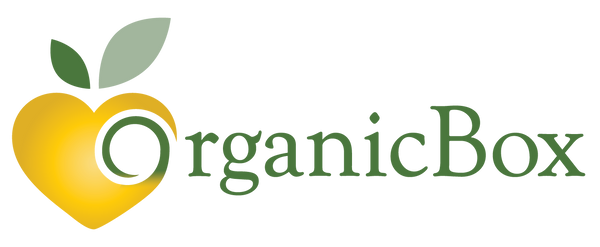
Have you ever wondered what's really in your food beyond the ingredients list? While most of us check labels for sugar, salt, and preservatives, there are invisible contaminants entering our food supply that don't appear on any label. PFAS chemicals and microplastics are two of the most concerning and they're more common than you might think.
If you're buying produce from conventional sources, there's a good chance you're being exposed to these substances through food packaging, plastic wrapping, and even the farming practices used to grow your vegetables.
The good news? Choosing Australian Certified Organic produce makes a real difference, and understanding why could change the way you shop for food.
What Are PFAS Chemicals?
PFAS stands for per- and polyfluoroalkyl substances - a group of over 4,000 manufactured chemicals that have been used since the 1950s. You might have heard them called "forever chemicals" because they don't break down in the environment or in our bodies.
These chemicals are valued for being heat-resistant and water-repellent, which is why they've been used in everything from non-stick cookware to stain-resistant fabrics. But here's where it gets concerning for food safety: PFAS are commonly used in food packaging materials.
In Australia, studies have found PFAS in various food contact materials, particularly in:
- Takeaway food containers
- Pizza boxes
- Burger wrappers
- Paper packaging is designed to be grease-resistant
-
Some compostable food packaging
The Microplastics Problem
If PFAS weren't enough to worry about, there's also the issue of microplastics, tiny plastic particles smaller than 5 millimetres that are showing up everywhere, including in our food.
Microplastics enter the food supply through several pathways:
Food Packaging: When plastic packaging is exposed to heat (like microwaving) or freezing, it can release microplastics into food. Research has shown that common plastic food wrap can generate anywhere from 66 to over 2,000 microplastic particles per square centimetre under normal food storage and preparation conditions.
Conventional Farming: Here's something that might surprise you - conventional farming practices can introduce microplastics into the soil. In Australia, research has revealed that compost made from organic waste can contain thousands of microplastic particles per kilogram.
This happens because "compostable" plastic bags and packaging materials don't always fully break down and end up contaminating the compost that's then used on farms.
A recent Australian study found that between 2.7 and 206 tonnes of microplastics are being transported to Australian agricultural land from compost each year. These microplastics can be absorbed by plants and end up in the vegetables you eat.
Water and Soil Contamination: PFAS chemicals from various sources have contaminated soil and water in numerous locations across Australia. When conventional farms use this contaminated water or soil, these chemicals can accumulate in crops.
Why This Matters For Your Health
You might be thinking, "Okay, but are these chemicals actually harmful?" The research is concerning.
PFAS Health Concerns: Laboratory studies have linked PFAS exposure to effects on reproductive systems, developmental issues, and other health concerns. While Australian authorities state that current levels in the food supply are low, these chemicals accumulate in the body over time. The Australian Government has developed guidance values for PFAS in food, acknowledging that exposure should be minimised where possible.
Microplastics Health Risks: The science on microplastics and health is still developing, but we know these particles can contain chemical additives and absorb pollutants from the environment. While Food Standards Australia currently views the risk as low, many experts advocate for a precautionary approach, especially for pregnant women, children, and those eating organic food delivered regularly.
The real issue is that we're exposed to these chemicals constantly, from multiple sources, and they build up in our bodies over time. This is why choosing organic produce delivery that minimises these exposures makes sense.
What Australian Certified Organic Certification Means
This is where Australian Certified Organic (ACO) certification becomes incredibly important. It's not just about avoiding pesticides – it's about a complete system that protects you from these hidden contaminants.
When you see the ACO Bud logo on your fresh food box, it means the product has gone through rigorous certification that addresses multiple aspects of food safety:
Chemical-Free Farming Practices: ACO-certified farms cannot use synthetic pesticides, herbicides, or fertilisers. This means the soil isn't being contaminated with chemicals that could interact with or contain PFAS. The certification also prohibits GMOs and sewage sludge, which can be sources of contamination in conventional farming.
Strict Packaging Standards: Certified organic producers must follow guidelines about packaging and handling. While conventional food might come wrapped in plastic or PFAS-containing materials, organic producers are more likely to use minimal, plastic-free packaging options.
Complete Traceability: One of the key benefits of ACO certification is full traceability from farm to table. Every certified organic product can be traced back to its origin, and producers are audited annually with random inspections throughout the year. This level of oversight simply doesn't exist for products that just say "organic" without certification.
Soil Health Standards: ACO standards require farmers to build and maintain healthy soil through natural methods. Healthy organic soil means better biodiversity and reduced risk of contamination from external sources.
At OrganicBox, we're proud to be ACO certified. This isn't just a marketing label – it's a guarantee that everything in your organic delivery meets some of the strictest food safety standards in the world.
The OrganicBox Difference
When you choose organic produce delivery from OrganicBox, you're getting more than just vegetables without pesticides. You're choosing a complete system designed to minimise your exposure to harmful chemicals.
Our Farms: We grow produce on our certified organic, biodynamic farm at Gumeracha and our Riverland Orchard. Our soil is regularly monitored and maintained according to ACO standards, which means no synthetic chemicals and no contaminated compost.
Our Sourcing: When we don't grow something ourselves, we source primarily from local SA-certified organic growers who meet the same strict standards. Everything in your organic vegetables delivered to your door is fully traceable.
Our Packaging: We're committed to minimal, eco-friendly packaging. We partner with BioBag for fully compostable materials where possible, and we avoid plastic packaging wherever we can. Unlike conventional food delivery that often uses plastic-heavy packaging, we prioritise materials that won't leach chemicals into your food.
Fresh, Not Processed: We harvest your produce on the day of packing. Our cold-chain process from farm to fridge is meticulous. This means your organic fruit and veg Adelaide delivery hasn't been sitting in plastic packaging for days or weeks, reducing any potential for contamination.
Why "Organic" Isn't Enough
Here's something important to understand: in Australia, anyone can put "organic" on their products without being certified. The word "organic" isn't legally protected yet, which means companies can make claims without meeting any standards.
When you shop for organic produce online or in stores, look for the ACO Bud logo. This is your guarantee that:
- The product has been through third-party certification
- The farm or producer is audited annually
- All standards are met and documented
- The product is genuinely organic, not just labelled that way
At OrganicBox, we're the only privately owned ACO-certified organic small business retailer in South Australia. This certification costs money and requires significant effort to maintain, but we believe it's worth it to give our customers real peace of mind.
Making The Switch To Certified Organic
If you're concerned about PFAS and microplastics in your food - and you should be - switching to organic grocery delivery is one of the most effective steps you can take.Here's why organic vegetables home delivery makes a difference:
Reduced Packaging Exposure: Your organic food delivery comes with minimal packaging, reducing contact with plastic and potentially PFAS-containing materials.
Clean Growing Practices: ACO-certified farms use practices that prevent soil and water contamination, meaning your vegetables aren't grown in contaminated environments.
No Chemical Accumulation: Without synthetic pesticides and fertilisers, there's no build-up of persistent chemicals in the soil or in your food.
Better for Long-Term Health: While one meal might not make a difference, consistently eating certified organic produce delivery means you're reducing your lifetime exposure to these chemicals.
The Bigger Picture
Choosing Australian Certified Organic isn't just about your personal health - it's about supporting farming practices that don't contaminate our soil and water for future generations. Every time you choose organic food Adelaide delivery over conventional produce, you're voting with your wallet for a cleaner, safer food system.
The research on PFAS and microplastics is still developing, and we're likely to discover even more reasons to avoid these chemicals in the coming years. But you don't have to wait for more research to make better choices for your family.
What You Can Do
If you're ready to reduce your exposure to PFAS and microplastics, here are practical steps:
- Choose Certified Organic: Look for the ACO Bud logo when shopping. If you're in Adelaide, organic produce from certified sources is readily available.
- Minimise Plastic Packaging: Choose organic produce delivery services like OrganicBox that prioritise minimal, eco-friendly packaging.
- Buy Fresh, Not Processed: Fresh organic vegetables delivered directly from farms have less opportunity for packaging contamination than processed foods.
- Support Local Organic Farms: When you buy organic fruit and vegetables from local certified farms, you're supporting farming practices that keep soil and water clean.
- Ask Questions: If a product claims to be organic but doesn't have certification, ask the producer about their practices and certifications.
The truth about PFAS and microplastics in our food supply is concerning. Australian Certified Organic certification exists specifically to address these kinds of issues providing a verified, traceable system that keeps harmful chemicals out of your food.
When you choose organic delivery from ACO-certified sources like OrganicBox, you're not just buying vegetables. You're choosing transparency, safety, and farming practices that protect both your health and the environment.
The question isn't whether you can afford to buy certified organic – it's whether you can afford not to. With growing evidence about the health impacts of PFAS and microplastics, and with no way to know what chemicals are lurking in conventional produce and packaging, certification offers the only real guarantee of safety.
Ready to make the switch? Your body – and the planet – will thank you. Explore our range of Australian Certified Organic boxes and start protecting your family today.

